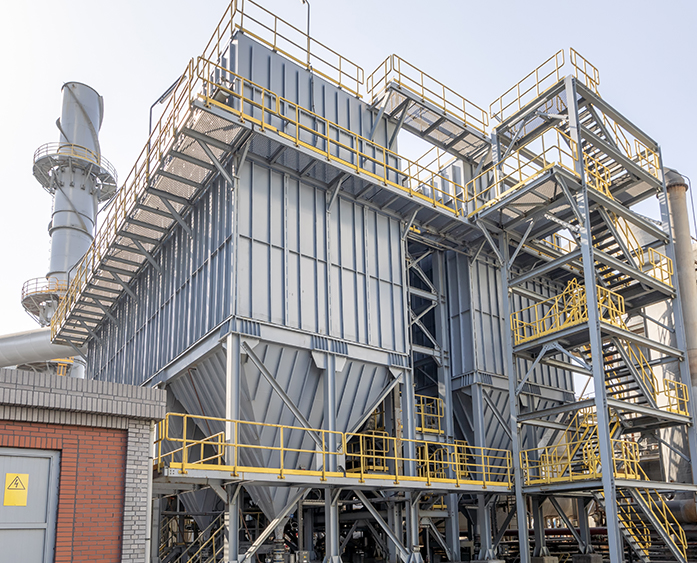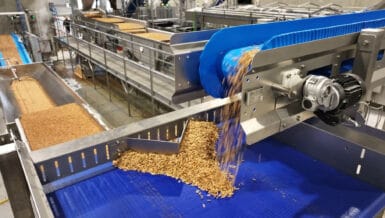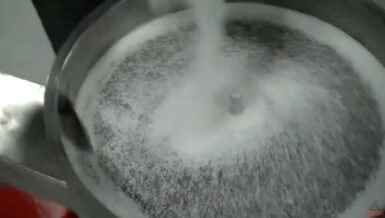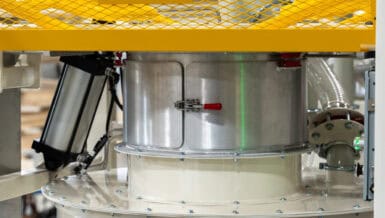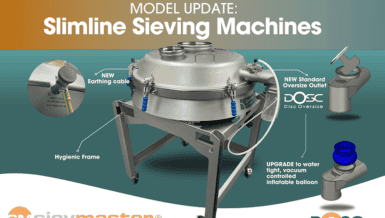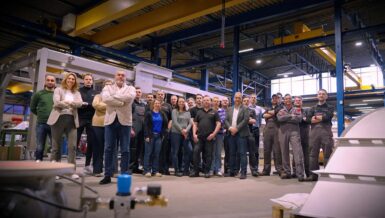Fine Screening Technology for Sustainable Dust Recovery and Resource Efficiency
When it comes to sustainability, many first think of wind turbines or solar energy. But even in existing screening and grinding processes, sustainable and economically beneficial changes can be implemented quickly and easily. RHEWUM fine screening technology – particularly through the RHEsono® and RHEsonox® systems – enables the recovery of valuable products from filter dusts with separations down to 50 µm or 300 mesh.
Filter Dust Recovery: Focusing on Energy Savings and Sustainability
In comminution technology, mills and screening machines work closely together. Screening machines retain only particles that exceed the defined maximum grain size. This process consumes between two and twenty kilowatt-hours of electricity per ton of material. Additionally, drying – for example, from 10% to below 2% residual moisture – requires about 48 kWh per ton. In total, this results in an energy demand of approximately 50 kWh per processed ton.
Central dedusting systems connect mills and screening machines to a filter unit, preventing dust emissions. Efficient dust management is critical to economic performance. Those who forgo modern, energy-efficient solutions risk long-term competitive disadvantages. Conversely, innovation can bring significant benefits over decades.
Application Example: Frac Sand Production Using RHEsono® Technology
Challenge
Fracking requires high-quality frac sand consisting of pure silicon dioxide with round particles. A precise particle size distribution at high throughput is essential. During processing, filter dust is generated that contains valuable, marketable products.
Solution
The RHEWUM RHEsono® 300×538/2 screening machine with electromagnetic drives is ideal for particles with sizes close to the mesh opening. It generates strong vibrations in the inclined screen fabric without transmitting significant movement to the machine body – minimizing wear, reducing maintenance costs, and protecting against silicosis.
Results
Approximately 12 tons per hour of sellable material could be recovered from filter dust. At a conservative price of 30 USD per ton, the investment paid off in less than one year. Thanks to the drive technology, energy costs are negligible.
Conclusion: Modern Fine Screening Technology as the Key to Greater Efficiency
The RHEsono® demonstrates how innovative technology can deliver both ecological and economic benefits. The potential of such systems is often underestimated in favor of traditional machines – a decision that can weaken competitiveness in the long term.
Using filter dust wisely reduces waste, saves energy, and increases efficiency. Payback periods of under 36 months are economically attractive – and at under 18 months, rapid implementation is advisable.
Act now for a more sustainable and cost-effective production process with RHEWUM fine screening technology. Contact us for a personalized consultation on dust recovery – let’s boost your efficiency and sustainability together.



